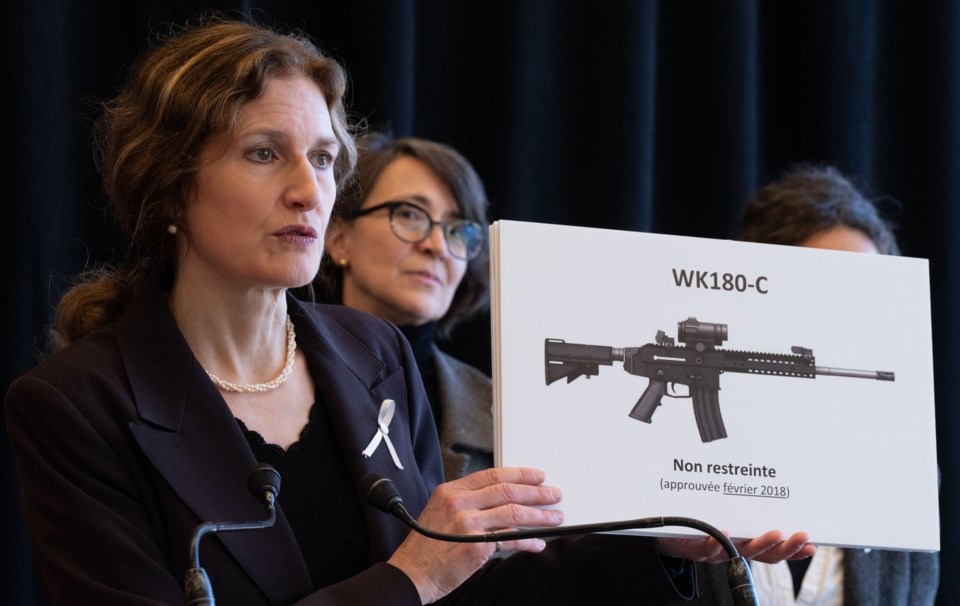MONTREAL — The Montreal massacre, which took place 35 years ago on Friday, sparked a national discussion about violence against women and drove major public policy changes, especially around gun control. Here is a timeline of some of the major events that have occurred since the 1989 mass shooting.
Dec. 6, 1989: For nearly 20 minutes, 25-year-old Marc Lépine stalked the hallways and classrooms of École Polytechnique de Montréal, armed with a semi-automatic rifle and a hunting knife. He murdered 14 women and injured another 13 people before killing himself. He claimed to be fighting feminism.
1991: The Coalition for Gun Control was formed to push for stricter gun laws. It included survivors of the Montreal massacre. Later that year, the federal government passed Bill C-17, which imposed safety training and a mandatory waiting period to get a firearms licence.
1991: The Canadian Parliament declared Dec. 6 to be the National Day of Remembrance and Action on Violence Against Women, known informally as White Ribbon Day. Flags on federal buildings are flown at half-mast on this day, and people are encouraged to observe a moment of silence and wear a white ribbon.
1995: Parliament passed the Firearms Act, Bill C-68, driven in part by a push for stricter gun laws following the Montreal massacre. The act created a national firearms registry and imposed new rules for obtaining a gun licence, including background checks.
2009: "Polytechnique," a black-and-white film about the massacre, directed by Denis Villeneuve, is featured at the Cannes Film Festival. The movie, filmed in French and English, was well-received by critics but sparked criticism from some who said it was inappropriate to make a commercial film based on the tragedy.
2012: The former Conservative government under prime minister Stephen Harper abolished the long-gun registry, which it said placed an unnecessary burden on law-abiding gun owners. Quebec subsequently created its own provincial registry to replace it.
2014: Polytechnique Montréal, which changed its name from École Polytechnique in 2006, launched the Order of the White Rose, a $50,000 scholarship created in honour of the victims and their family members.
2019: The City of Montreal replaced a sign at a memorial to the 14 women who died, which previously referred to the massacre simply as a "tragic event." The new sign describes it as an "anti-feminist attack."
2020: A series of attacks in Nova Scotia surpassed the Montreal massacre as the deadliest mass shooting in Canadian history. On April 18 and 19, a gunman violently assaulted his spouse then killed 22 people and injured three others at 16 locations across the province, before he was shot and killed by the RCMP. Shortly after, Prime Minister Justin Trudeau announced the government would ban 1,500 models of "assault-style" weapons.
2022: The Liberal government implemented a freeze on the sale of handguns and introduced legislation to enshrine its gun-control measures, which were driven in part by pressure from survivors of the Montreal massacre. But a buyback program for "assault-style" weapons has yet to materialize, and gun-control advocacy group PolySeSouvient has raised concerns that the government has abandoned its commitments.
This report by The Canadian Press was first published Dec. 5, 2024.
Maura Forrest, The Canadian Press




